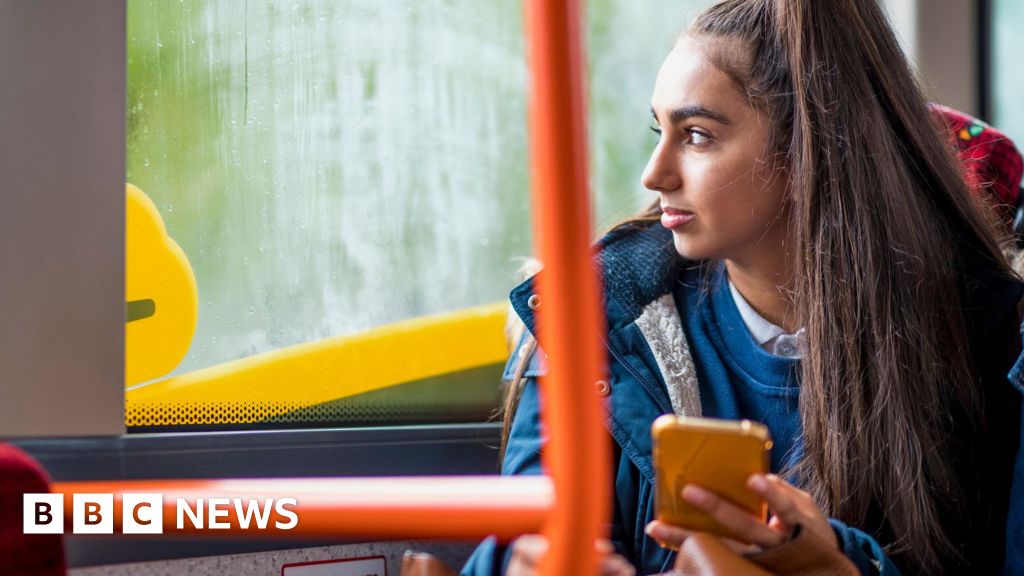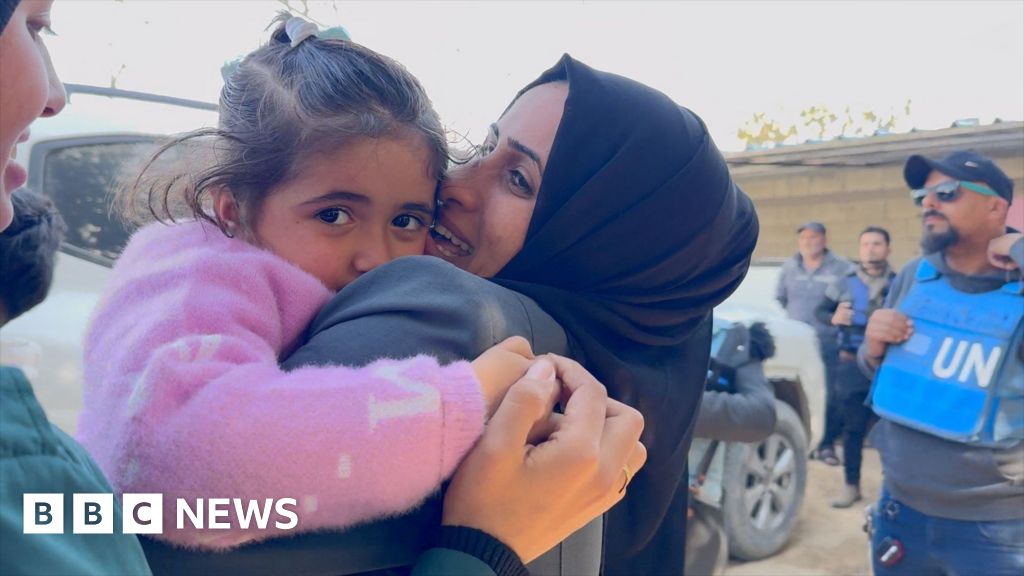The Azerbaijani government is using COP29 to crack down on environmental activists and other political opponents, according to human rights groups.
This is the third year in a row a country hosting the climate summit has been accused of oppression and curtailing the legal right to protest.
Climate Action Network, a group of nearly 2,000 climate groups, told BBC News the protection of civil society is crucial if countries want to see progress on climate change.
The Azerbaijani government rejects the claims and says the government holds no political prisoners.
Global leaders are currently meeting in Azerbaijan to discuss solutions to a warming planet. But rights organisations have called for a review of how countries are selected to host the climate summit after what they say is a worrying increase in the number of environmental prisoners of conscience in Azerbaijan.
Natalia Nozadze from Amnesty International told BBC News that since Azerbaijan was announced as the host country for COP29 in November last year it has become harder to oppose the government.
“We've seen a dramatic increase in arrests and clamp down on all issues that the government may perceive critical or contrary to its political agenda,” she said.
For the first time since the early 2000s the number of political prisoners - including journalists, environmental activists and political opponents - has reached more than 300, according to The Union "For Freedom of Political Prisoners in Azerbaijan”.
Gubad Ibadoglu, a 53-year old professor at London university LSE, researches Azerbaijan's oil and gas sectors and environmental issues but in summer 2023 he was arrested on charges of fraud.
More than a year later he remains under house arrest. Human Rights Watch called the charges “dubious” and Gubad Ibadoglu's daughter has appealed to UK Prime Minister Sir Keir Starmer for help in getting her father released.
"I think it is one of the rules of the authoritarian government, to arrest, to detain the people who have the power to impact opinion," Mr Ibadoglu told the BBC in an interview this week.
He says his life is in danger due to health reasons.
Anar Mammadli was arrested in April on charges of smuggling, just two months after he co-founded an organisation calling for the Azerbaijani government to do more to align with the Paris agreement - a major international treaty on cutting fossil fuel emissions.
Environmental activists want Azerbaijan to reduce its reliance on oil and gas, which finance around 60% of the government's budget.
But in January it was revealed Azerbaijan is planning on expanding production of natural gas - a fossil fuel - over the next decade, and on Tuesday President Ilham Aliyev told the COP29 climate conference that oil and gas are a "gift of god".
“COP29 - which was meant to be an open and inclusive platform for climate action - is shaping up to be anything but,” a close friend of Mr Mammadli, Bashir Suleymanli, told the BBC.
“Civil society groups that should be playing a crucial role in holding governments accountable have been sidelined or repressed,” he said.
Nazim Beydemirli, 61, was sentenced to eight years in prison in October for extortion. He was arrested last year after he protested about gold mining operations near his village. No evidence was presented during his 15 months of pre-trial detention. His lawyer, Agil Lajic, insists the charges are baseless, and part of a broader pattern of silencing dissent in Azerbaijan ahead of COP29.
The United Arab Emirates and Egypt who hosted previous COP climate summits faced similar criticisms for their treatment of civil society groups.
“I think it's a big mistake for countries - like Azerbaijan or United Arab Emirates or Egypt - who systematically violate human rights, to be accepted as eligible host countries,” said Azerbaijani journalist and environmental campaigner Emin Huseynov.
“President Aliyev isn’t connected with climate change, but he's looking for COP29 as a unique opportunity to whitewash and greenwash himself, his toxic image,” he said.
Speaking before the start of the conference, the President's Special Envoy Elchin Amirbayov, told the BBC: “I don’t accept these type of allegations, as they are not based on facts.
"Azerbaijan doesn’t [differentiate] in terms of participation in this global event of state and non-state actors, including civil society members.”
Each year the host is selected from a different region of the world, and all countries from that region have to agree on where the COP summit will be held. How they might be prevented from selecting a country that is hostile to civil society is unclear.
“All countries need to be included, that's the point of the United Nations,” said Andreas Sieber, from climate campaign group 350.org. “The question is, what rules do you put in place?”
He has called on the UN to make sure the host country agreement - the contract between the UN and the host - contains a clause banning the use of spyware against attendees – which he says was a concern at previous conferences.
The UN does allow activists to protest at COP and in response the UNFCCC - the arm of the UN responsible for climate change - said: "This year’s Host Country Agreement for the first time includes provisions on the protection of human rights, which we welcome as a positive step forward."
But Tasneem Essop, executive director of Climate Action Network, said: "The [UN] cannot tell the host country what they can and cannot do about their human rights situation - that's the challenge.”
She said it is up to other countries to call this issue out, but Ms Essop and Mr Sieber both agreed that this is difficult considering the support for civil society is shrinking globally, not just in Azerbaijan.
In October, members of the European Parliament condemned Azerbaijan's “repression” of activists, journalists, and opposition figures, and deemed its human rights abuses incompatible with hosting COP29.
But Emin Huseynov thinks the international community has largely “given up” on this issue and cited the apparent silence from the UK government, in particular, compared with previous years when it publicly called out COP27 hosts Egypt on its human rights record.
On Tuesday, Mr Starmer met with the Azerbaijani President Aliyev at COP29 but he would not say if human rights or Mr Ibadoglu's case was discussed.
A Foreign Office spokesperson said the issue is “regularly raised” by ministers.
Tasneem Essop said resolving this issue is critical because of the vital role civil society plays in progressing the climate change agenda.
“It was civil society that fought the battle to establish a loss and damage fund [to help poorer countries deal with the impact of climate change], after more than 30 years of countries, negotiating and fighting,” she said.
“Our presence really does hold their feet to the fire. We will hold them to account.”

 1 month ago
26
1 month ago
26













 English (US) ·
English (US) ·